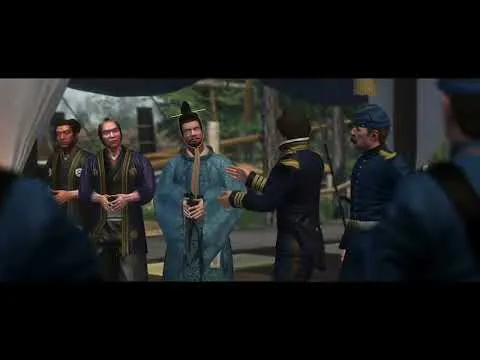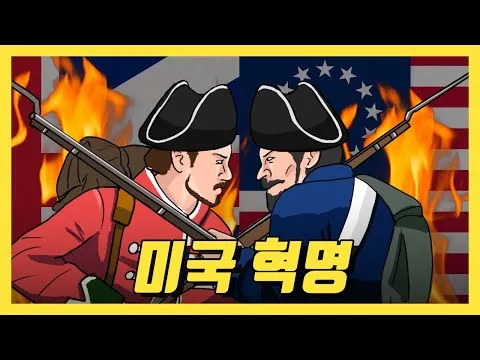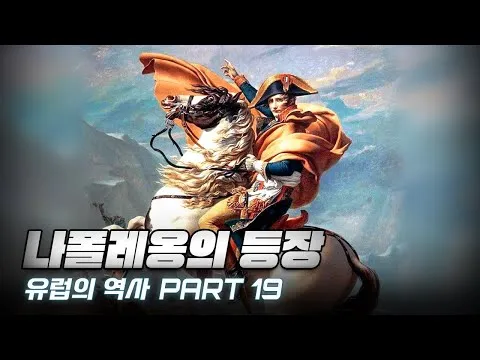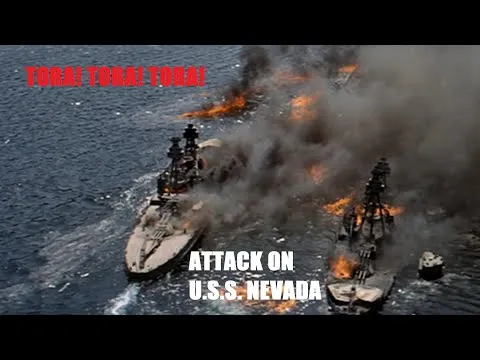 By August 2022 Pfizer Knew of 1.6M injuries from their Product
By August 2022 Pfizer Knew of 1.6M injuries from their Product
Rational and ethical scientific policy would have long ago pulled these bioweapons from the market,
As I read Genius @valued-customer ' article, I remembered about American history studied by the Japanese!
I originally learned American and European history and international geopolitics from Japanese overlords.
When the American fleet first appeared before the Japanese in 1853, the Japanese had a hunch that Japan's end was near!
Since ancient times, China and Korea have often attempted to conquer Japan, but failed.
And after repelling the invasion of Mongol and Goryeo allies in 1271, the Japanese were convinced that they were a great nation protected by the gods!
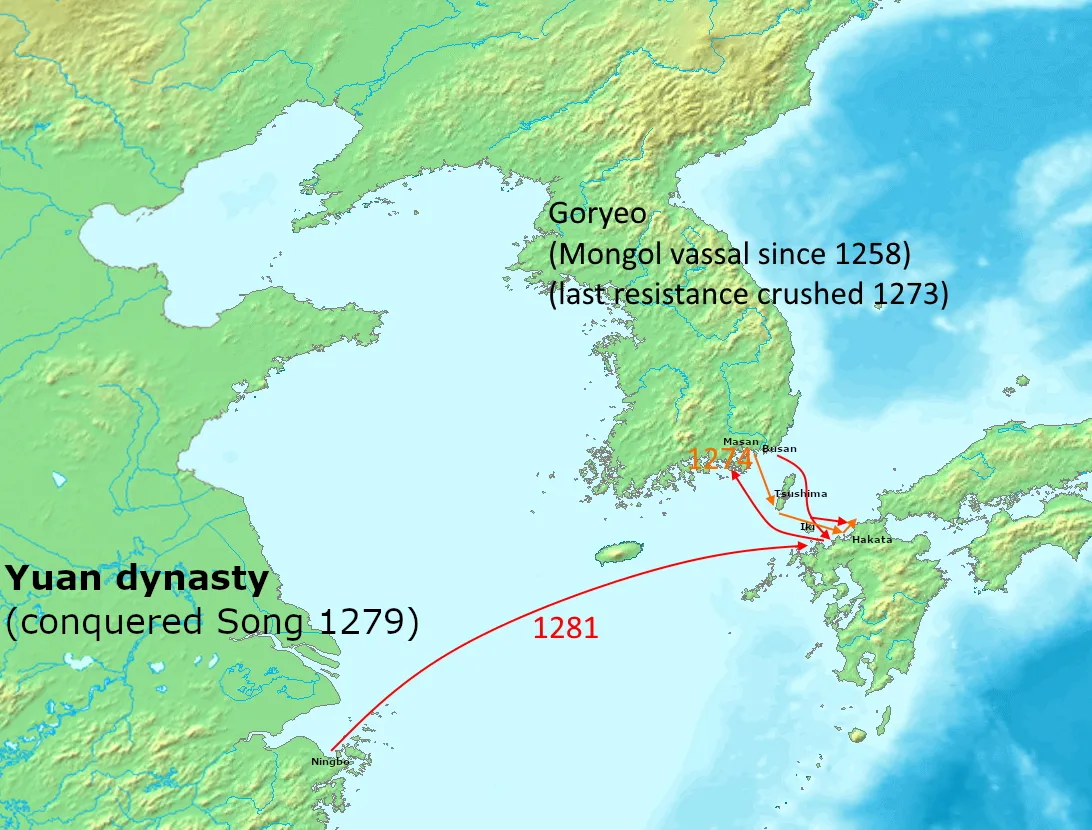 Mongol invasions of Japan in 1274 and 1281
Mongol invasions of Japan in 1274 and 1281
Major military efforts were taken by Kublai Khan of the Yuan dynasty in 1274 and 1281 to conquer the Japanese archipelago after the submission of the Korean kingdom of Goryeo to vassaldom. Ultimately a failure, the invasion attempts are of macro-historical importance because they set a limit on Mongol expansion and rank as nation-defining events in the history of Japan. The invasions are referred to in many works of fiction and are the earliest events for which the word kamikaze (神風 "divine wind") is widely used, originating in reference to the two typhoons faced by the Yuan fleets.
The invasions were one of the earliest cases of gunpowder warfare outside of China. One of the most notable technological innovations during the war was the use of explosive, hand-thrown bombs.[7]
The Japanese indulged in self-importance and pride that Japan, protected by the gods, could repel any foreign aggression.
However, the Christian Empire of the New World, which emerged from beyond the Pacific, plunged the Japanese into a pit of fear!
The Japanese were familiar with Europe because they had been trading with them since around the 16th century.
However, the Christian Empire of the New World was the first opponent they had ever seen.
who are the americans?
Nanban trade (南蛮貿易, Nanban bōeki, "Southern barbarian trade")
Nanban trade (南蛮貿易, Nanban bōeki, "Southern barbarian trade") or the Nanban trade period (南蛮貿易時代, Nanban bōeki jidai, "Southern barbarian trade period") was a period in the history of Japan from the arrival of Europeans in 1543 to the first Sakoku Seclusion Edicts of isolationism in 1614.[note 1] Nanban (南蛮 Lit. "Southern barbarian") is a Japanese word which had been used to designate people from Southern China, the Ryukyu islands, the Indian Ocean and Southeast Asia centuries prior to the arrival of the first Europeans. For instance, according to the Nihongi ryaku (日本紀略), Dazaifu, the administrative center of Kyūshū, reported that the Nanban (southern barbarian) pirates, who were identified as Amami islanders by the Shōyūki (982–1032 for the extant portion), pillaged a wide area of Kyūshū in 997. In response, Dazaifu ordered Kikaijima (貴駕島) to arrest the Nanban.
The Nanban trade as a form of European contact began with Portuguese explorers, missionaries, and merchants in the Sengoku period and established long-distance overseas trade routes with Japan. The resulting cultural exchange included the introduction of matchlock firearms, galleon-style shipbuilding, and Christianity to Japan. The Nanban trade declined in the early Edo period with the rise of the Tokugawa Shogunate which feared the influence of Christianity in Japan, particularly the Roman Catholicism of the Portuguese. The Tokugawa issued a series of Sakoku policies that increasingly isolated Japan from the outside world and limited European trade to Dutch traders on the island of Dejima.
Japanese overlords recognized that Americans were different human beings from Europeans.
The Japanese were well aware of the iniquity and barbarism of Europeans in Asia.
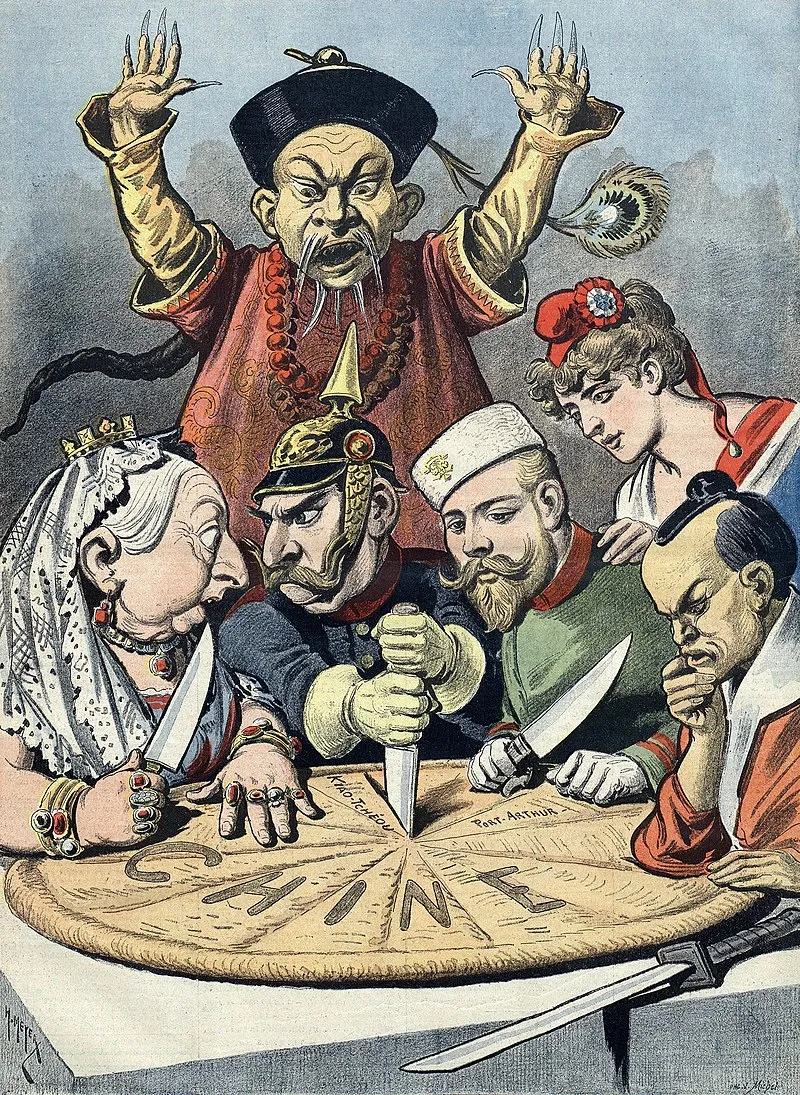 A French political propaganda cartoon depicting China as a pie about to be carved up by Queen Victoria (United Kingdom), Kaiser Wilhelm II (Germany), Tsar Nicholas II (Russia), Marianne (France) and a samurai (Japan), while Boxer leader Dong Fuxiang protests
A French political propaganda cartoon depicting China as a pie about to be carved up by Queen Victoria (United Kingdom), Kaiser Wilhelm II (Germany), Tsar Nicholas II (Russia), Marianne (France) and a samurai (Japan), while Boxer leader Dong Fuxiang protests
The Boxer Rebellion, also known as the Boxer Uprising, the Boxer Insurrection, or the Yihetuan Movement, was an anti-foreign, anti-colonial, and anti-Christian uprising in China between 1899 and 1901, towards the end of the Qing dynasty, by the Society of Righteous and Harmonious Fists (Yìhéquán). The rebels were known as the "Boxers" in English because many of its members had practiced Chinese martial arts, which at the time were referred to as "Chinese boxing".
After the Sino-Japanese War of 1895, villagers in North China feared the expansion of foreign spheres of influence and resented the extension of privileges to Christian missionaries, who used them to shield their followers. In 1898 Northern China experienced several natural disasters, including the Yellow River flooding and droughts, which Boxers blamed on foreign and Christian influence. Beginning in 1899, Boxers spread violence across Shandong and the North China Plain, destroying foreign property such as railroads and attacking or murdering Christian missionaries and Chinese Christians. The events came to a head in June 1900 when Boxer fighters, convinced they were invulnerable to foreign weapons, converged on Beijing with the slogan "Support the Qing government and exterminate the foreigners."
Diplomats, missionaries, soldiers and some Chinese Christians took refuge in the diplomatic Legation Quarter. An Eight Nation Alliance of American, Austro-Hungarian, British, French, German, Italian, Japanese and Russian troops moved into China to lift the siege and on 17 June stormed the Dagu Fort, at Tianjin. The Empress Dowager Cixi, who had initially been hesitant, now supported the Boxers and on 21 June, issued an Imperial Decree declaring war on the invading powers. Chinese officialdom was split between those supporting the Boxers and those favouring conciliation, led by Prince Qing. The supreme commander of the Chinese forces, the Manchu General Ronglu (Junglu), later claimed he acted to protect the foreigners. Officials in the southern provinces ignored the imperial order to fight against foreigners.
The Eight-Nation Alliance, after initially being turned back by the Imperial Chinese military and Boxer militia, brought 20,000 armed troops to China. They defeated the Imperial Army in Tianjin and arrived in Beijing on 14 August, relieving the fifty-five day siege of the Legations. Plunder of the capital and the surrounding countryside ensued, along with summary execution of those suspected of being Boxers in retribution. The Boxer Protocol of 7 September 1901 provided for the execution of government officials who had supported the Boxers, provisions for foreign troops to be stationed in Beijing, and 450 million taels of silver— more than the government's annual tax revenue—to be paid as indemnity over the course of the next 39 years to the eight nations involved. The Qing dynasty's handling of the Boxer Rebellion further weakened their control over China, and led the dynasty to attempt major governmental reforms in the aftermath.


The Japanese began to study Americans and Europeans in comparison.
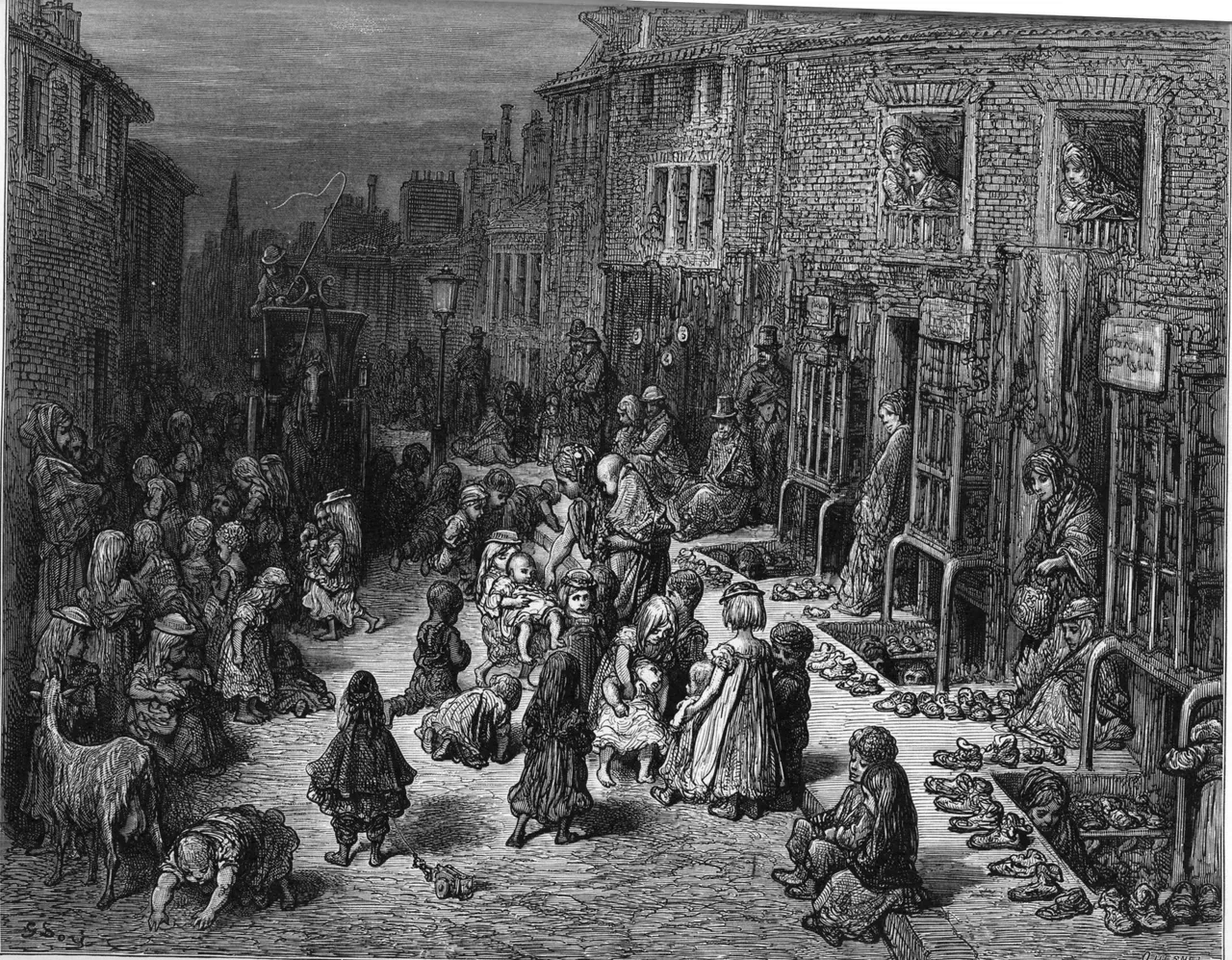
slums in 19th century London


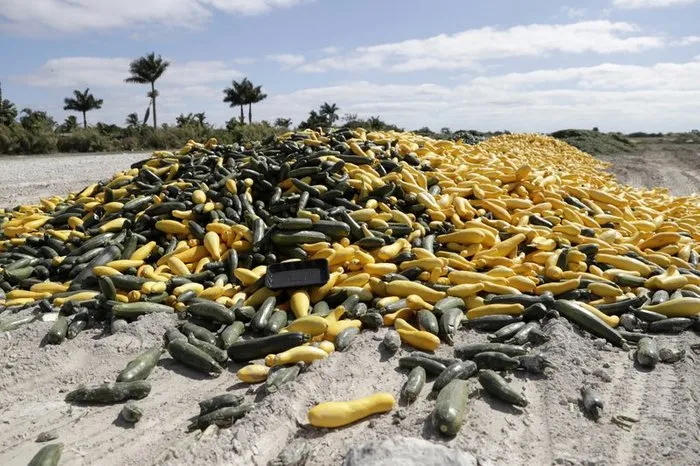
The Japanese discoverd Europe is as poor as the Asian world, but
America is very affluent!
Europeans exploit Asians very cruelly because they are poor.
Americans, on the other hand, are kind because they are rich, but they always do Christian missions to Asians.
The Japanese began weighing which enemy was more dangerous, the United States or Europe.
The Japanese felt that they should first study the history of Europe, the ancestors of the Americans.
The Japanese studied the relationship, progress, and outcome of the American Revolution and the French Revolution.
@valued-customer told me that the sovereigns of America are the civilians.
So, Japanese overlords studied for a long time the effects of the American Revolution on Europe, caused by American civilians.
2. The International Geopolitics of Overlords in East Asia
Japanese overlords thought that the American Revolution had killed or put them out of power over the overlords of European empires.
Europe can't conquer Japan because it's poor,
America can conquer Japan because it is very rich.
Americans are friendly, but more feared adversaries than Europeans.
The overlords of Japan loved by @valued-customer came to this brilliant conclusion!😆
Japan's overlords set out to find a way to win a possible future war with the United States.
Japanese overlords took advantage of the French Revolution to establish the French Empire and paid attention to Napoleon, who became emperor.
The fact that Napoleon became emperor for the sake of the French Revolution will be a clue for Japanese overlords to wage war against the Republic of the New World and win.
Thus, Napoleon became the most respected and popular with Japanese overlords.
So, Japan's overlords eagerly learned French language, culture, the Palace of Versailles, etiquette and manners.
Americans admire the manners, manners, dress, and language of French royalty.
Japanese overlords would gain the respect of Americans if they learned the language, etiquette and manners of the Versailles Palace dance party.
I am very curious to see what kind of expression my respected senior Steve will have on the conclusion of the Japanese!😄
I'm a little worried that Steve might feel that my awkward English sentences are rude!😂
I want to believe that he will understand my awkward English sentences!
Japanese overlords believed that by imitating their European overlords, they could win future wars with the Christian empires of the New World.

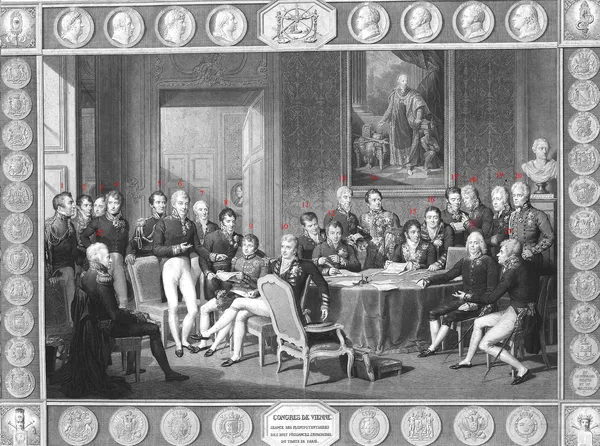 The Congress of Vienna
The Congress of Vienna
The Congress of Vienna[1] of 1814–1815 was a series of international diplomatic meetings to discuss and agree upon a possible new layout of the European political and constitutional order after the downfall of the French Emperor Napoleon Bonaparte.[2] Participants were representatives of all European powers and other stakeholders, chaired by Austrian statesman Klemens von Metternich, and held in Vienna from September 1814 to June 1815.
The objective of the Congress was to provide a long-term peace plan for Europe by settling critical issues arising from the French Revolutionary Wars and the Napoleonic Wars through negotiation. The goal was not simply to restore old boundaries, but to resize the main powers so they could balance each other and remain at peace, being at the same time shepherds for the smaller powers. More generally, conservative leaders like von Metternich also sought to restrain or eliminate republican, liberal, and revolutionary movements which, from their point of view, had upended the constitutional order of the European ancien régime, and which continued to threaten it.
At the negotiation table, the position of France was weak in relation to that of Britain, Prussia, Austria and Russia, partly due to the military strategy of its dictatorial leader over the previous two decades and his recent defeat. In the settlement the parties did reach, France had to give up all its recent conquests, while the other three main powers made major territorial gains. Prussia added territory from smaller states: Swedish Pomerania, most of the Kingdom of Saxony, and the western part of the former Duchy of Warsaw. Austria gained much of northern Italy. Russia added the central and eastern part of the Duchy of Warsaw. All agreed upon ratifying the new Kingdom of the Netherlands, which had been created just months before from formerly Austrian territory.
The immediate background was Napoleonic France's defeat and surrender in May 1814, which brought an end to 23 years of nearly continuous war. Remarkably, negotiations continued unaffected despite the outbreak of fighting triggered by Napoleon's return from exile and resumption of power in France during the Hundred Days of March to July 1815. The Congress's agreement was signed nine days before Napoleon's final defeat at Waterloo on 18 June 1815.
Some historians have criticised the outcomes of the Congress for causing the subsequent suppression of national, democratic, and liberal movements,[3] and it has been seen as a reactionary settlement for the benefit of traditional monarchs. Others have praised the Congress for protecting Europe from large widespread wars for almost a century.
In particular, Japanese overlords understood The Congress of Vienna as the most important historic event.
Because they admired the ways in which European overlords attending The Congress of Vienna turned their rebellious @valued-customers into their obedient servants.😆
Japanese overlords admired the way European overlords dominated @valued-customers and tried to imitate them!
Because Japan's overlords had a hunch that they must win a future war against American civilians @valued-customers so that they could enjoy their wealth and power forever!
The Americans have given the Japanese ample lessons!
From @valued-customer
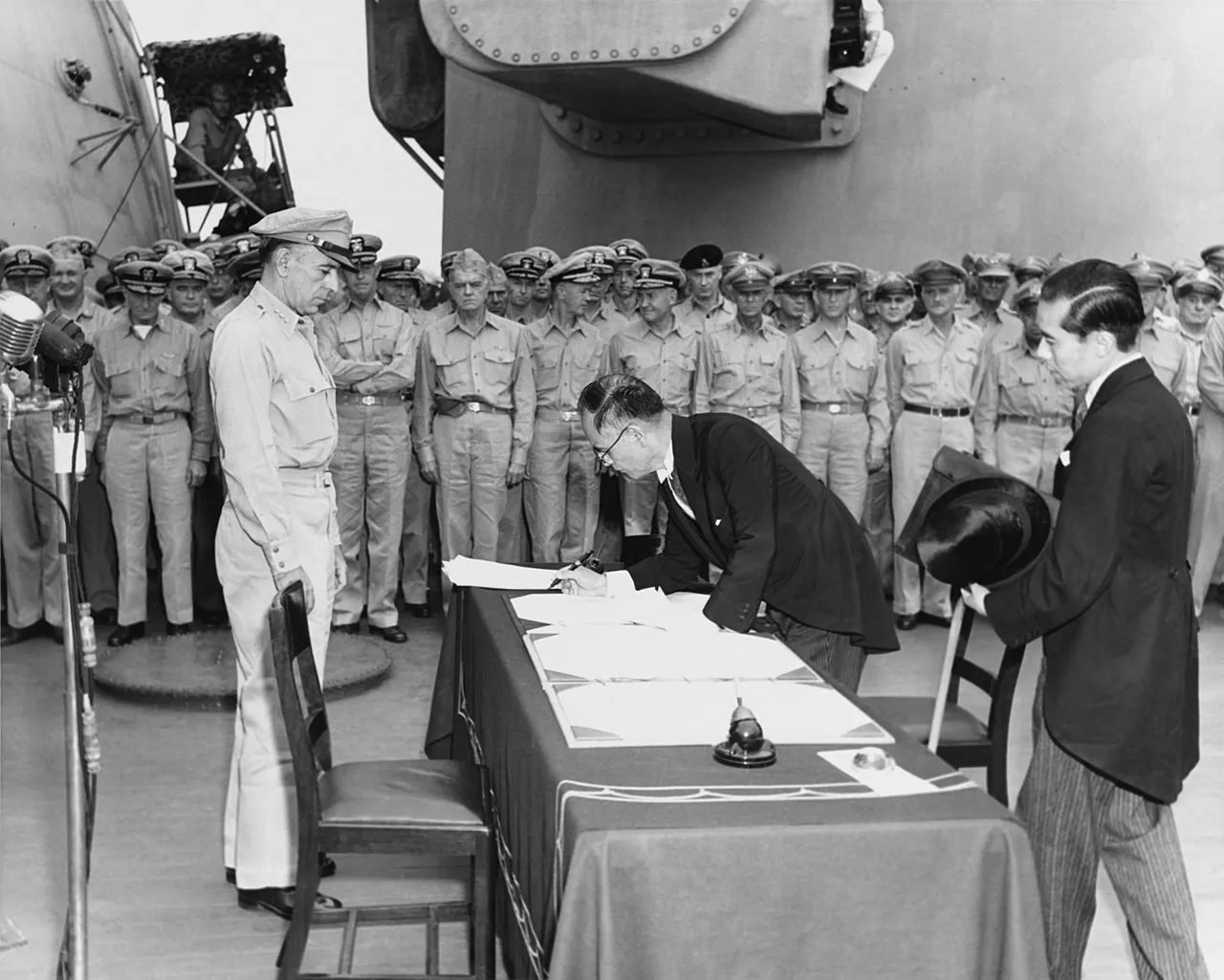 Japanese foreign affairs minister Mamoru Shigemitsu signs the Japanese Instrument of Surrender aboard the USS Missouri as American General Richard K. Sutherland watches, 2 September 1945.
Japanese foreign affairs minister Mamoru Shigemitsu signs the Japanese Instrument of Surrender aboard the USS Missouri as American General Richard K. Sutherland watches, 2 September 1945.
The surrender of the Empire of Japan in World War II was announced by Emperor Hirohito on 15 August and formally signed on 2 September 1945, bringing the war's hostilities to a close. By the end of July 1945, the Imperial Japanese Navy (IJN) had become incapable of conducting major operations and an Allied invasion of Japan was imminent. Together with the United Kingdom and China, the United States called for the unconditional surrender of the Japanese armed forces in the Potsdam Declaration on 26 July 1945—the alternative being "prompt and utter destruction". While publicly stating their intent to fight on to the bitter end, Japan's leaders (the Supreme Council for the Direction of the War, also known as the "Big Six") were privately making entreaties to the publicly neutral Soviet Union to mediate peace on terms more favorable to the Japanese. While maintaining a sufficient level of diplomatic engagement with the Japanese to give them the impression they might be willing to mediate, the Soviets were covertly preparing to attack Japanese forces in Manchuria and Korea (in addition to South Sakhalin and the Kuril Islands) in fulfillment of promises they had secretly made to the United States and the United Kingdom at the Tehran and Yalta Conferences.
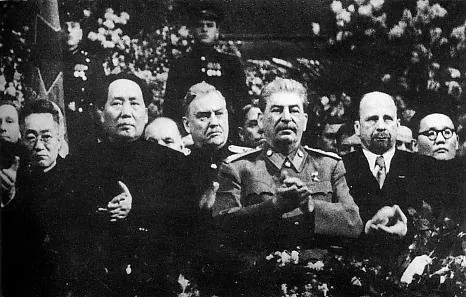
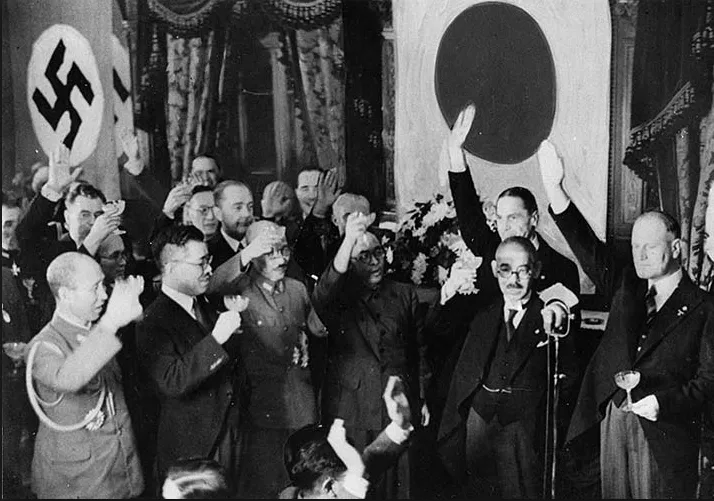
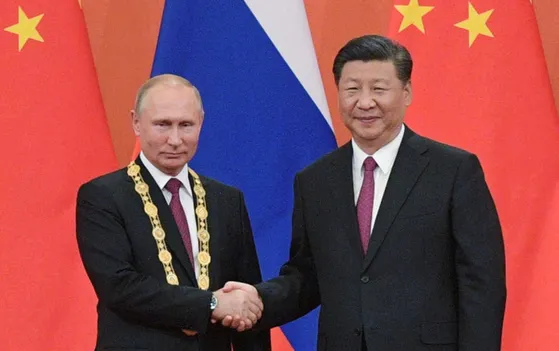
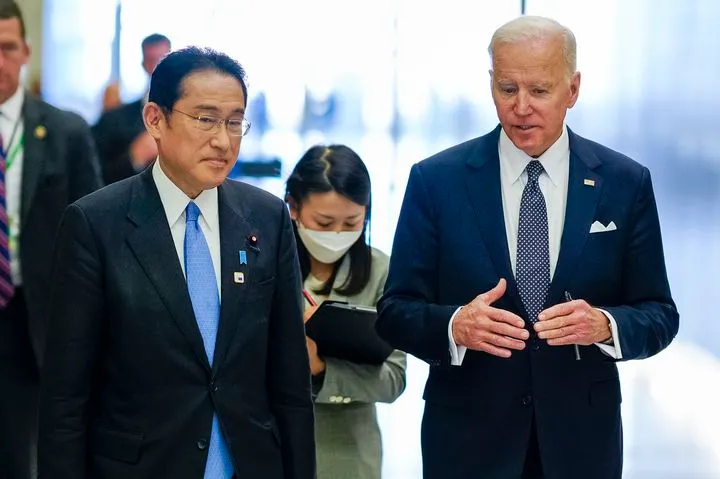

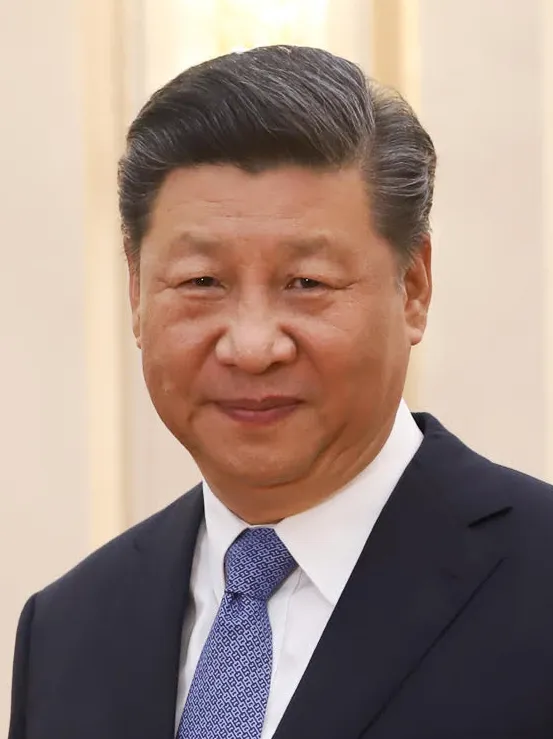
disclaimer : Please, Forgive me for my rude behavior of using Your Majesty's photos without permission!🙏
